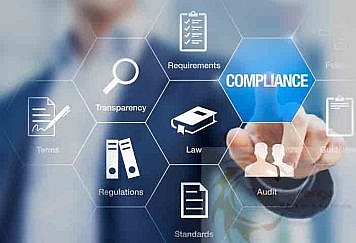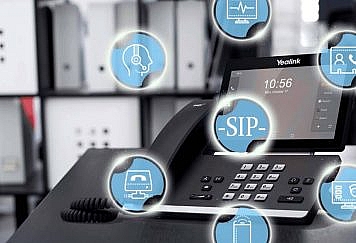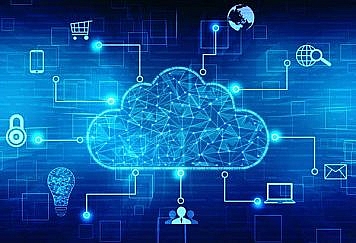Maintaining mental health is becoming one of the main challenges for both individuals and the global economy. More and more people are suffering from depression, anxiety, and other mental disorders. The COVID-19 pandemic with all the consequences has aggravated the situation.
No wonder the global market for mental health services, according to Report Ocean, will grow at 3.7% per year in the coming years and will reach $540 billion by 2030. Mobile applications play an important role: they are always at hand, easy to use, and often completely or partially free. Some of them are created by professional psychologists and are based on scientific methods.
Based on the experience of technology partner Emerline, let’s find out how telehealth helps people maintain mental health and how to properly organize mental health monitoring remotely.
Why Is It Important to Pay Attention to Mental Health?
Mental health is an integral part and essential component of overall health. It is crucial for our collective and individual ability as human beings to think, emote, communicate with one another, earn a living, and enjoy life.
According to the World Health Organization’s report on mental illnesses, one out of every four persons faces a mental or neurological disorder at some point throughout their life. The WHO also states that about 264 million people worldwide suffer from depression, 45 million people worldwide suffer from bipolar disorder, and 20 million people worldwide suffer from schizophrenia and other types of psychosis. The number of visits to psychologists increases significantly during times of global turmoil, such as during a pandemic, war, or an unstable situation in the country.
At the same time, not everyone receives psychological assistance. In low- and middle-income countries, 76% to 85% of patients with mental disorders don’t receive any treatment. Even in developed countries, it is also difficult for people living in rural and remote areas to get psychological help.
For this reason, there is an increased demand for mental health services in the technology market.
How to Organize Remote Mental Health Monitoring?
The mobile application market offers a large number of solutions for those with mental disorders. Of course, mobile apps don’t equal qualified help from a specialist, but they will help you control your condition and predict the moment when it is definitely time to see a doctor, which is quite convenient in a pandemic. What are the alternatives to going to the doctor?
Chatbots for mHealth
Tech companies around the world are combining the power of artificial intelligence with the portability of smartphones to create chatbots customized to help patients with mental health issues. Such chatbots allow users to communicate with intelligent technology and receive the necessary diagnostics and advice around the clock to help improve mental health.
CRM Systems
CRM systems for mental health professionals are designed to improve the overall administration of therapy sessions, reduce administrative labor, and ensure high safety standards. Such tools also enable the consolidation of the work of several departments, resulting in a more productive and efficient practice.
Online Session Rooms
Like many processes, sessions with psychotherapists and psychologists moved online during the pandemic. Many solutions offer all the necessary tools for conducting online sessions via video. With such solutions, doctors can quickly contact patients who cannot visit their offices, organize effective communication, and monitor changes in the patients’ mood and behavior.
Management Platforms for mHealth
Today, such platforms help fight mental illness by providing early intervention and treatment. The platforms are equipped with a wide range of useful tools for healthcare professionals: planning tools, client portals, progress notes, individual treatment plans, online chats and rooms for video sessions, billing tools, and other useful features.
IoT Devices
We are talking about small portable devices, such as watches, bracelets, belts, and other items that have built-in sensors for tracking physical activity and measuring heart rate. These devices can be easily synchronized with other devices to monitor your health in applications. They record deviations from the norm and help to identify stressful conditions and emotional reactions that are characteristic of people with mental illness (for example, a fast heart rate triggered by a panic attack).
mHealth Mobile Apps
Mobile applications for mental health are one of the most accessible and easy-to-use solutions that make the life of people with psychological disabilities much easier. Such applications use proven methods such as Cognitive Behavioral Therapy (CBT) and Acceptance Commitment Therapy (ACT) and help people with conditions ranging from depression to eating disorder recovery, anxiety, PTSD, obsessive-compulsive disorder, and more.
The apps have a variety of features, such as reminding patients to take their medicines, suggesting specific practices to reduce stress, monitoring mood changes, and providing helpful advice.
Benefits for Healthcare Specialists
And if the benefits for patients of the tools and solutions mentioned above are clear, then let’s look at how they can simplify the lives of mental health workers. The benefits are the following:
- Better patient access to mental health services;
- Efficient scheduling and easy billing;
- Mitigation of mental health professionals shortage;
- Increase in ROI;
- More effective work coordination between healthcare professionals;
- Ease of communication and monitoring;
- Social distancing;
- The flexibility of use.
Whether you want to create your own mental health app or add innovative features to an existing app, turn to a trusted technology partner. Emerline specialists develop their products together with experts from various industries and are ready to support you at all stages of the project. In case of any questions, book a free consultation.
Follow TechStrange for more Technology, Business, and Digital Marketing News.





